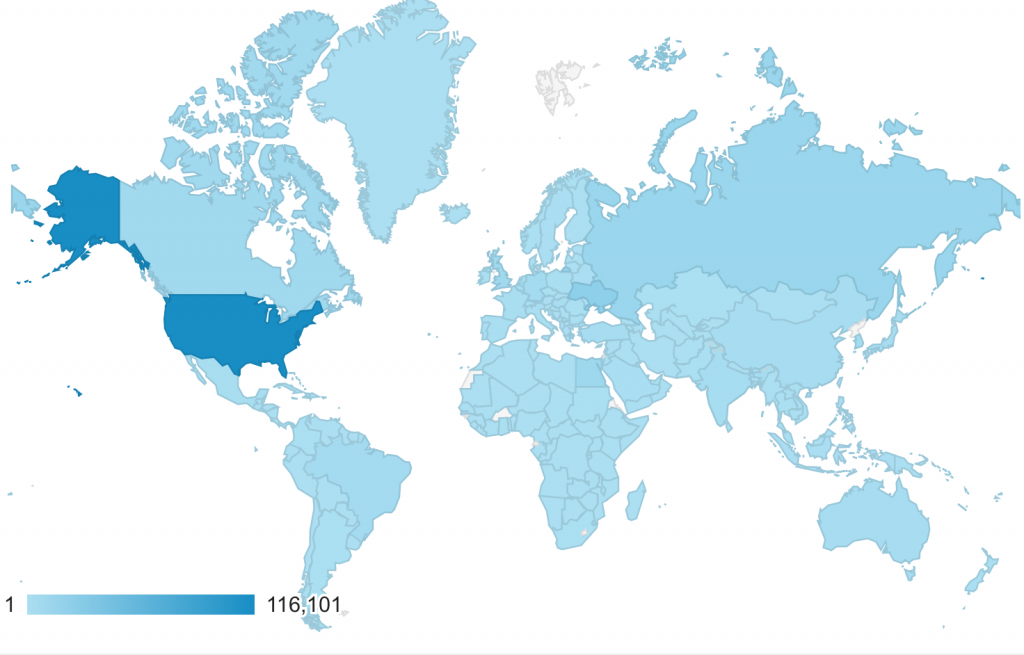
The Open Syllabus Explorer is two months old and just crossed 250,000 visits. One of the exciting aspects of the launch for us has been the process of discovering the audience for the project. We anticipated strong interest from US academics in the teaching rankings within fields and the ‘teaching scores’ for their own work. The traffic data appear to bear out that assumption. We anticipated interest from the library, publishing, [open data](http://www.hyperorg.com/blogger/2016/01/22/15345/\), and educational technology worlds, and from students.
We didn’t expect the extent to which the OSP would be treated as an authoritative ranking of Great Books, with a broad audience interested in non or extra-academic learning. The most powerful hook for media stories (and resulting bumps in traffic) wasn’t the things that interested us most—the significance of introducing a new publishing metric and the potential for exploring the history of fields—but the use of the top-ranked books as a proxy for being educated or ‘well-read’, and the enduring connection of these ideas to forms of status anxiety. The Washington Post boiled this down to its simplest form: [What Ivy League students are reading that you aren’t](http://What Ivy League students are reading that you aren’t).
Other directions have emerged as well. We saw a funny meme take hold that claimed that American students were being indoctrinated in Marxist revolutionary theory, based on the #4 ranking of “The Communist Manifesto.” Bizarrely, this became the most common framework for international stories about the project, alongside a US right wing version that juxtaposed high-ranked Marx to the allegedly absent Bible. In fact, “The Communist Manifesto” ranks highly because it is widely taught across a number of fields, particularly sociology, political science, and history, and the Bible doesn’t appear because our methods can’t currently identify texts without authors.
We also accidentally enabled an attack on Time Magazine, which inadvertently placed (male) Evelyn Waugh on a list of the top 100 women authors. This seemed to us to be no big deal, but many others jumped at the opportunity to shame the magazine, which in practice just meant shaming the young data researcher who compiled the data and thought he was doing a good thing by highlighting women authors. Waugh-related jokes and related scolding actually trended on Twitter for a couple days. Our hunch is that a fuller explanation of Time’s ‘error’ would find that Waugh is one of the losers in literature canon change, and that as a result very few people under 40 have read him or, accordingly, been corrected on his gender during college. We may be able to demonstrate this when we fold syllabus dates into the Explorer.
We issued a call for a university-supported Syllabus Commons as a means of establishing responsible, open university governance over this valuable resource. Many large universities are sitting on tens of thousands of syllabi: Columbia University has around 70,000. We’re exploring ways for universities to provide access to these collections on the anonymous, no-republication basis with which we treat other syllabi in our collection. The result will hopefully be a ‘metadata commons,’ in which the basic structured information from the document is available for statistical treatment but the document itself is not. Our hope is that this model will avoid some of the battles around strong open access mandates. From the university perspective, the best reason to participate may be the value of curricular analysis to re-accreditation or more routine departmental reviews, though we expect a wide range of other beneficiaries, from faculty building courses to university presses trying to understand their markets. We have also expanded our faculty donation model and now have around 1000 syllabi that we can make public. We will make provisions for these in a later version of the Explorer, and hopefully be able to expand it into a major feature of the tool. Somewhat to our surprise, there appears to be a large audience for seeing complete syllabi.
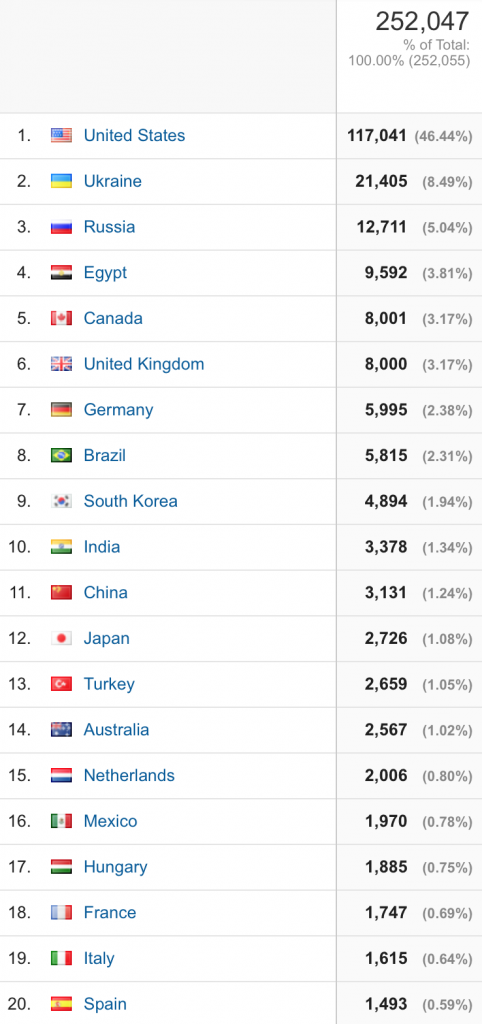 Perhaps the most surprising thing has been the uptake of the OSP outside the US, where the OSP’s representation of (primarily) US curricular choices appears to have high value for student, academic, and post-academic learning. After the US, the top visiting countries to the Explorer are Ukraine, Russia, and Egypt–clusters of interest for which we have no real explanation. After the initial coverage by the New York Times and Washington Post, roughly two-thirds of visits have come from outside the US. We don’t have a good account of how the OSP is being used in these contexts, but that is definitely a subject we’ll try to explore.
Perhaps the most surprising thing has been the uptake of the OSP outside the US, where the OSP’s representation of (primarily) US curricular choices appears to have high value for student, academic, and post-academic learning. After the US, the top visiting countries to the Explorer are Ukraine, Russia, and Egypt–clusters of interest for which we have no real explanation. After the initial coverage by the New York Times and Washington Post, roughly two-thirds of visits have come from outside the US. We don’t have a good account of how the OSP is being used in these contexts, but that is definitely a subject we’ll try to explore.
Next up for the OSP: a point release with coverage of scientific articles, full release of the metadata, permalinks and some other improvements.
Ps. For another perspective on the geography of use of the OSP, here’s a list of top 20 cities by visits.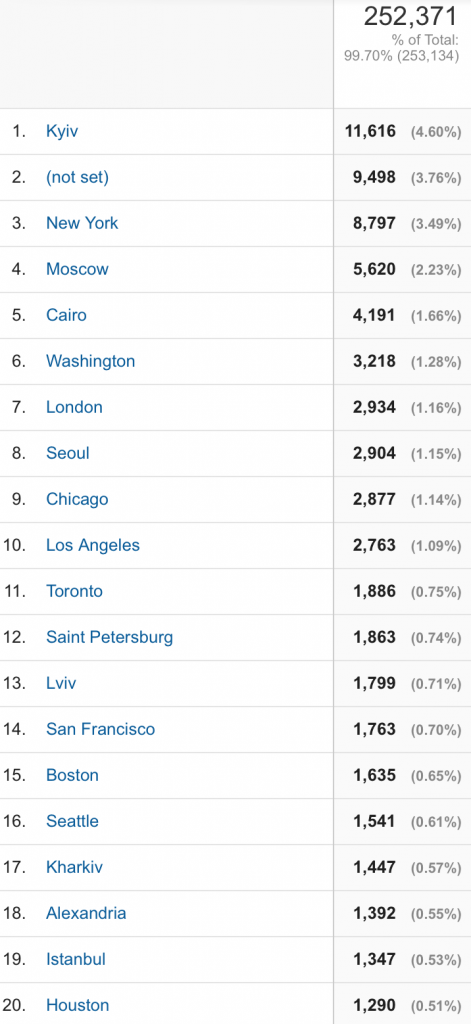

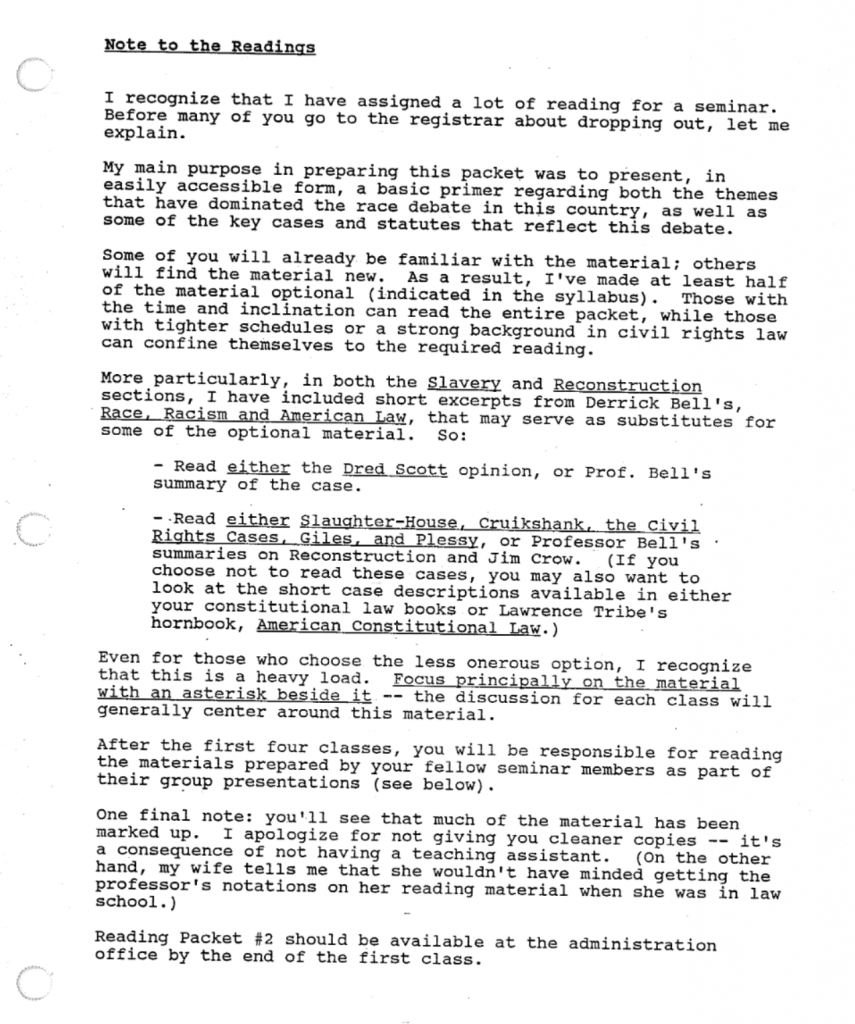
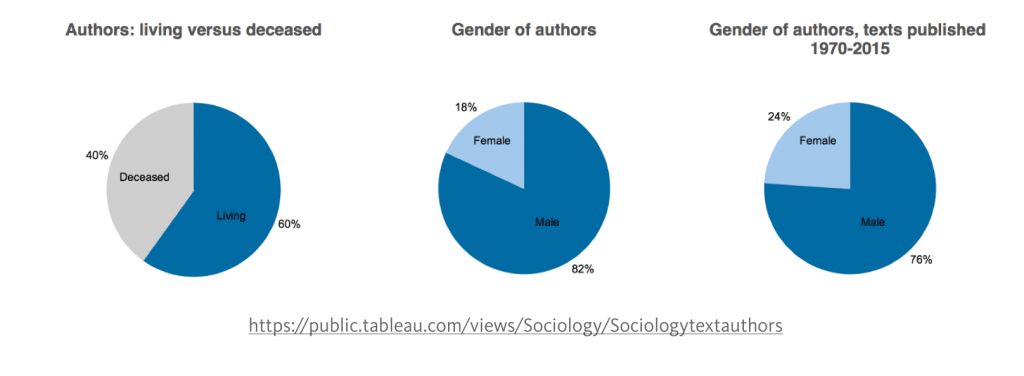
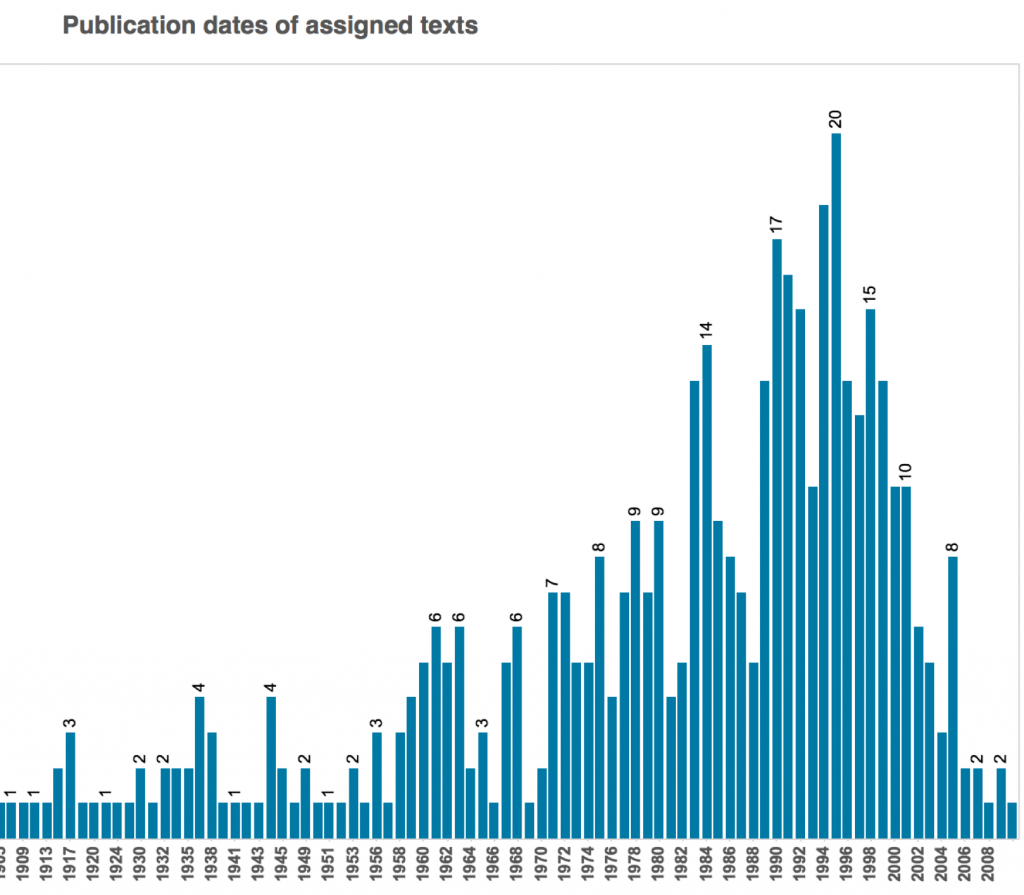

 Perhaps the most surprising thing has been the uptake of the OSP outside the US, where the OSP’s representation of (primarily) US curricular choices appears to have high value for student, academic, and post-academic learning. After the US, the top visiting countries to the Explorer are Ukraine, Russia, and Egypt–clusters of interest for which we have no real explanation. After the initial coverage by the
Perhaps the most surprising thing has been the uptake of the OSP outside the US, where the OSP’s representation of (primarily) US curricular choices appears to have high value for student, academic, and post-academic learning. After the US, the top visiting countries to the Explorer are Ukraine, Russia, and Egypt–clusters of interest for which we have no real explanation. After the initial coverage by the 